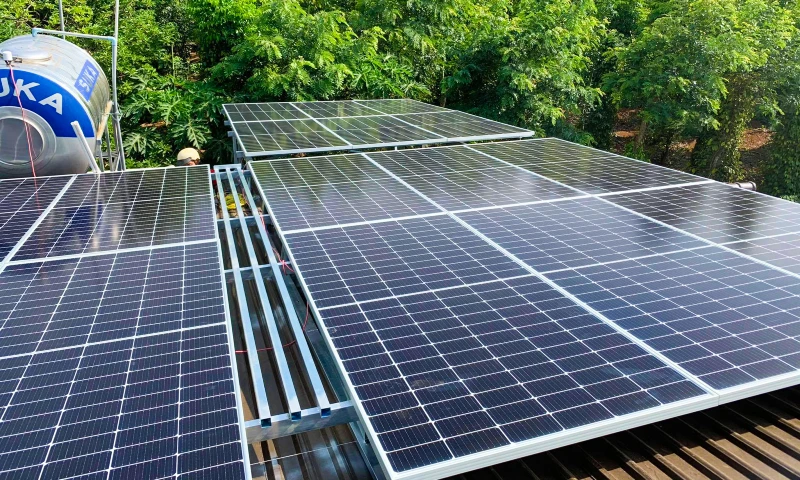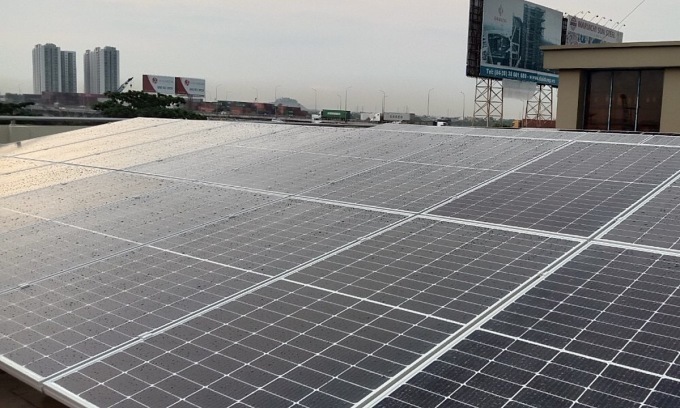Excess rooftop solar power sold at maximum 20% capacity
Unused self-produced and self-consumed rooftop solar power can be sold to the national grid but not exceeding 20% of the installed capacity, according to the Government’s Decree.
On October 22, the Government issued Decree 135 on encouraging the development of self-produced and self-consumed rooftop solar power. This regulation applies to self-consumed solar energy sources installed on the roofs of houses, offices, industrial parks, clusters, export processing zones, high-tech zones, economic zones and production and business establishments.
Accordingly, unused self-produced and self-consumed rooftop solar power systems can be sold to the national grid, up to 20% of the actual installed capacity. Projects installed on the roofs of offices and public assets will not be allowed to buy or sell excess electricity.
Self-consumed rooftop solar power projects not connected to the national grid can be developed without capacity limits, exempted from electricity operation licenses. Similarly, systems with anti-backflow devices installed in households and individual houses under 100 kW are also exempted from this.
Conversely, systems with a capacity of 1,000 kW or more and selling surplus electricity to the national grid must carry out planning procedures and have an electricity operation license.
Vietnam Electricity Group (EVN) is the buyer and pays organizations and individuals selling surplus electricity output to the system. The purchase price is the average market electricity price of the previous year, announced by the system operator and the electricity market.

People install rooftop solar power systems. Photo: VGP
Currently, the country has about 103,000 rooftop solar power projects, with a total installed capacity of more than 9,500 MW. According to the Power Plan VIII, the scale of this type of source by 2030 will increase by 2,600 MW or reach 50% of office buildings and residential houses.
Previously, when drafting the draft, the Ministry of Industry and Trade said that the policy was not “keen” on buying and selling rooftop solar power, because this source of power is unstable and depends on weather factors. Meanwhile, to buy excess electricity, the State must spend a lot of money on investing in storage, transmission, operation and maintenance systems. However, after commenting, many experts proposed allowing people to install rooftop solar power for their own use to sell the surplus to the grid. Authorities can set a limit on the surplus rate to avoid taking advantage of policies, especially in industrial parks and clusters.
In addition to allowing the sale of surplus electricity, according to the new regulations, rooftop solar power projects that produce and consume electricity themselves will also enjoy tax incentives and simplified administrative procedures… Households and individual houses are exempted or do not have to adjust their business licenses. In addition, organizations and individuals are encouraged to install their own battery storage systems (BESS) to ensure safe and stable operation. However, the incentive mechanism will not apply to cases where rooftop solar power is not connected to the national grid for sale to other organizations and individuals. This purchase and sale will follow the regulations on the direct electricity purchase and sale mechanism between renewable energy generators and large electricity users (DPPA).







